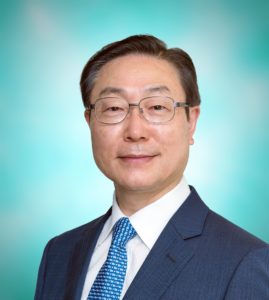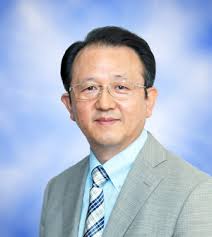On May 3, senior leaders, at the level of heads of state, gathered in Korea, kicking off of The Elders’ Roundtable.
Today, the declining birth rate coupled with the increasing disproportionate elderly population has become a global issue. Abuse of the elderly and erosion of their human rights are becoming commonplace.
Senior leaders from around the world, at the level of heads of state, held an assembly on February 24 to promote setting up such a group, and The Elders’ Roundtable officially began on May 3 under True Mother’s proposition.
Most of those who participated have devoted themselves to building peace in the world or have invested their efforts for peace and security of their own people, and are now retired from the field.
From a different perspective, they have become “mere mortals” and are forced to live out the rest of their lives as part of the elderly population.
“The Elders” as a new foundation of society
The elderly are regarded as people who need protection or welfare. In terms of social security as well, they are treated as an aging generation that need to be taken care of and policies are created to deal with them in this manner.
However, True Mother did not want to seal up the wisdom and experience accumulated throughout the lives of the senior members. Instead, she thought of a way to make use of their “knowledge” and become assets to society. She did not want them to just become the “elderly” generation, but be a new foundation to society as “elders.” Therefore, with the purpose of having them play the role of “grandparents” in society, she proposed the The Elders’ Roundtable.
In Japan, where the elderly are often regarded as the weakest members of society, the concept of “elders” is rather weak, but this has taken root in Korean society. It is very significant that this concept is being transmitted from the chosen nation that received the True Parents.
Individual human rights are based on “family rights”
Every human being is born with familial love. Before we are individuals, we are born as our parents’ children. Children then grow up to become husband or wife, parents, and grandparents. In this family community, they spend their lives growing up, experiencing the heart of children, the heart of brothers and sisters, the heart of husband and wife, the heart of parents, and the heart of grandparents.
Human beings are indeed beings of heart. We cannot live alone. Before being an individual, human beings exist in a family and are “familial beings.”
If we are to discuss the topic of human rights, we must take a step forward from the understanding of human rights based on individualism and base our thinking on “family rights,” in which people protect each other’s rights and cooperate with each other within the family community.
This start to The Elders’ Roundtable is a concrete proposal to offer fundamental solutions to today’s social problems, based on the concept of “family rights” as a concept for human rights that falls within the realm of three-generations of grandparents, parents, and children, from the perspective of one world family centered on the Heavenly Parent (God).
In Korea, there is a word called, “naeri-sarang.” It’s direct translation is “love that flows downward” (and means, “elders’ love for the young”). It expresses the way love flows from top to bottom like the flow of water.
When this kind of love that flows downwards is applied not only to the family community, but also to society and the nation, the influence of elders will increase.
If a culture in which the “mature generation” as elders, pass on their experiences and wisdom to the younger generation, who will take responsibility for the future of the world, a culture based on love can be established. Through this culture, trust will form between generations, and a path to solving many problems will emerge. It will truly be a community of interdependence, mutual prosperity, and universal value.
Need to build a foundation for an “elder” institution
In order to realize a world of lasting peace based on the model of a family community founded on love, a foundation for such an institution must be created in which the elderly, who may be grandparents at home, can play the role of elders in society, the nation, and the world.
It is a matter of how to look at old-age: do we look at the elderly from the perspective of just growing old, or from the perspective of maturing through life experiences? There is a big difference.
This type of institution will promote healthy participation of the elderly in society as elders, where they will be asked to play roles in in creating policies for the society and the nation.
The Kingdom of Heaven is not something that can be created by chanting mantras like a Buddhist prayer. We must do our utmost to build a culture of heart formed in the family community centering on the Heavenly Parent, which will be the foundation of “family rights.”
The core value of this culture is hyojeong. Each generation in the realm of three generations of grandparents, parents, and children must receive the “love that flows downward” that pours out from the Heavenly Parent. If so, the culture of heart, based on this tradition of love, will flow on and on to become the core of creating a peaceful world.


